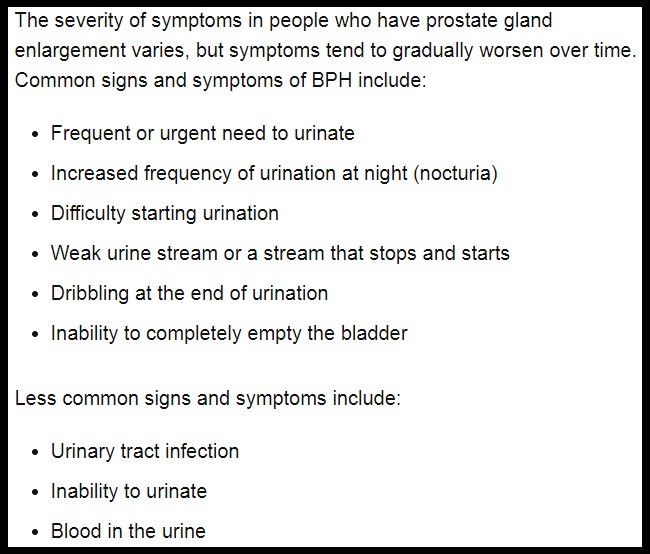
In December 2019, the sports world was saddened by the news that former heavyweight boxing champion Leon Spinks had cancer that started in his prostate and then spread to his bladder.
As ESPN reports, Spinks spent much of 2019 in the Intensive Care Unit of a Las Vegas hospital undergoing treatment for his cancer.
As USA Today reports, he was discharged on Christmas Eve 2019, which allowed him to be home for the first time in more than a month.
According to the same USA Today story, Spinks was age 65 when he was diagnosed as having prostate cancer.
Here is response to Spinks’ fate from SurvivorNet journalist Laura Gesualdi-Gilmore:
Spinks’ story should be a wake-up call for all men over age 50. They need to have their prostates checked, preferably annually. This is especially true for black men. The following graphs reveal why.
A simple PSA blood test can alert a physician to the possibility that a man has a prostate problem.
Here is an explanation from the National Cancer Institute:
Prostate-specific antigen, or PSA, is a protein produced by normal, as well as malignant, cells of the prostate gland. The PSA test measures the level of PSA in a man’s blood. For this test, a blood sample is sent to a laboratory for analysis. The results are usually reported as nanograms of PSA per milliliter (ng/mL) of blood.
The blood level of PSA is often elevated in men with prostate cancer, and the PSA test was originally approved by the FDA in 1986 to monitor the progression of prostate cancer in men who had already been diagnosed with the disease. In 1994, the FDA approved the use of the PSA test in conjunction with a digital rectal exam (DRE) to test asymptomatic men for prostate cancer. Men who report prostate symptoms often undergo PSA testing (along with a DRE) to help doctors determine the nature of the problem.
In addition to prostate cancer, a number of benign (not cancerous) conditions can cause a man’s PSA level to rise. The most frequent benign prostate conditions that cause an elevation in PSA level are prostatitis (inflammation of the prostate) and benign prostatic hyperplasia (BPH) (enlargement of the prostate). There is no evidence that prostatitis or BPH leads to prostate cancer, but it is possible for a man to have one or both of these conditions and to develop prostate cancer as well.
Even if a man over age 50 doesn’t get prostate cancer, it is probable that he will have an enlarged prostate.
As Harvard Medical School reports, “When a man reaches about age 25, his prostate begins to grow. This natural growth is called benign prostatic hyperplasia (BPH) and it is the most common cause of prostate enlargement. BPH is a benign condition that does not lead to prostate cancer, though the two problems can coexist.”
Harvard Medical School also reports, “By age 60, half of all men will have an enlarged prostate, a condition also known as benign prostatic hyperplasia, or BPH. By age 85, the proportion reaches 90%.”
Regarding an enlarged prostate, the Mayo Clinic reports the following:

If an enlarged prostate is detected early enough, then it can be treated with the use of prescription medication.
If a prostate has grown too large before being detected, then surgery may be required.
This writer knows first-hand what the latter is like. On 05 December 2019, I underwent out-patient surgery for an enlarged prostate.
I wasn’t diagnosed as having an enlarged prostate until a month earlier. By then, my prostate was too large to be successfully treated with medication alone.
The surgery itself was no problem. The after-effects are the problem.
Recovery from laser prostate surgery is quicker than the older type of surgery, but recovery still takes more than a month.
The post-surgery discomfort is difficult to live with. I had the advantage of not having to work during my recovery period. Yet, I experienced plenty of post-surgery misery.
I was age 55 before a urologist discovered that I needed prostate surgery. She made the discovery when she performed a cystoscopy on me.
I might have avoided the need for surgery if I had been diligent enough to have my prostate checked during an annual physical after I reached the age of 50.
That is why I am urging every man over the age of 50 to undergo an annual prostate exam. Undergoing one each year is far easier than having to go to a urologist because of a prostate problem.
Featured Image by Adam Jones, PhD. Licensed under the Creative Commons Attribution-Share Alike 2.0 Generic license.
REFERENCES
4 tips for coping with an enlarged prostate. Harvard Health Publishing. Retrieved from https://www.health.harvard.edu/mens-health/4-tips-for-coping-with-an-enlarged-prostate
Benign prostatic hyperplasia (BPH). Mayo Clinic. Retrieved from https://www.mayoclinic.org/diseases-conditions/benign-prostatic-hyperplasia/symptoms-causes/syc-20370087
Cystoscopy for Men. Cleveland Clinic. Retrieved from https://my.clevelandclinic.org/health/diagnostics/8529-cystoscopy-for-men
Gesualdi-Gilmore, L. (2020, January 3). Boxing Champ Leon Spinks’ Prostate Cancer Has Spread — What Are the Treatment Options? SurvivorNet. Retrieved from https://www.survivornet.com/articles/boxing-champ-leon-spinks-prostate-cancer-has-spread-what-are-the-treatment-options/
Peter, J. (2020, January 2). Former boxing champ Leon Spinks’ prostate cancer has spread. USA Today. Retrieved from https://www.usatoday.com/story/sports/boxing/2020/01/02/former-boxing-champ-leon-spinks-suffering-cancer/2797723001/
Prostate-Specific Antigen (PSA) Test. National Cancer Institute. Retrieved from https://www.cancer.gov/types/prostate/psa-fact-sheet
Rafael, D. (2019, December 14). Leon Spinks showing ‘small signs’ of improvement. ESPN. Retrieved from https://www.espn.com/boxing/story/_/id/28295840/leon-spinks-showing-small-signs-improvement
The growing problem of an enlarged prostate gland. Harvard Health Publishing. Retrieved from https://www.health.harvard.edu/mens-health/the-growing-problem-of-an-enlarged-prostate-gland
The “Wanted” posters say the following about David: “Wanted: A refugee from planet Melmac masquerading as a human. Loves cats. If seen, contact the Alien Task Force.”

















